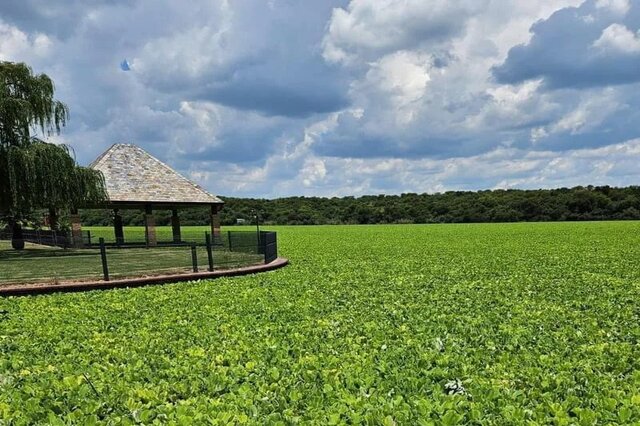Cape Town – Authorities engaged in an ongoing battle to rid the Vaal River of invasive water lettuce are fast tracking the refurbishment of wastewater treatment facilities along the river’s basin, in an effort to address the root causes of the problem – pollution.
Last month Rand Water launched a three-pronged approach to clear the noxious weed, including biocontrols using weevils and hoppers, physical clearing and an approved herbicide glyphosate.
However, concerns about the environmental impact of glyphosate prompted a reevaluation of the control methods.
The Vaal River is under siege 😳😳
Taken over by water lettuce. This is a huge problem! Each plant produces 5000 seeds. The problem almost doubles daily 😳@Rand_Water what do you intend to do about it? pic.twitter.com/cBOPDvLbJD
— 🦋💫💞 My_Homeland 💞💫🦋 (@RhodieEx) January 27, 2024
Engineering News reports that a collaborative task force comprising the Department of Water and Sanitation, the Department of Forestry, Fisheries, and the Environment and Rand Water, are now investigating multiple control strategies to find a sustainable and holistic solution to the water lettuce problem.
The refurbishment of wastewater treatment works in the area will help to intercept and neutralise pollutants before they can further exacerbate the water lettuce invasion.
According to Daily Maverick the spread of the water lettuce exploded over December 2023, causing businesses in the area to complain that it was affecting tourism.
[UPDATE ON THE CLEARING OF ALIEN INVASIVE PLANTS AT THE VAAL RIVER]
Minister @Senzo_Mchunu_ and Minister @BarbaraCreecy_ have established a technical Task Team led by the Directors General and the Chief Executive Officer of @Rand_Water following public concerns relating to the… pic.twitter.com/tTCZuM6qLS
— Water&SanitationRSA (@DWS_RSA) March 5, 2024
Rand Water environmental services manager Dr Lesley Hoy said earlier that the extent of the water lettuce problem at the Vaal had not been witnessed before in South Africa.
“The extent of the problem is almost a new facet to try and deal with. Added to that, we do not only have water lettuce, but hyacinth as well. Unfortunately, the weather and the [poor] waterquality have not helped. So, the growth has continued unabated,” he said.
Follow African Insider on Facebook, Twitter and Instagram
Picture: X/@environmentza
For more African news, visit Africaninsider.com
Compiled by Samantha Mochele


